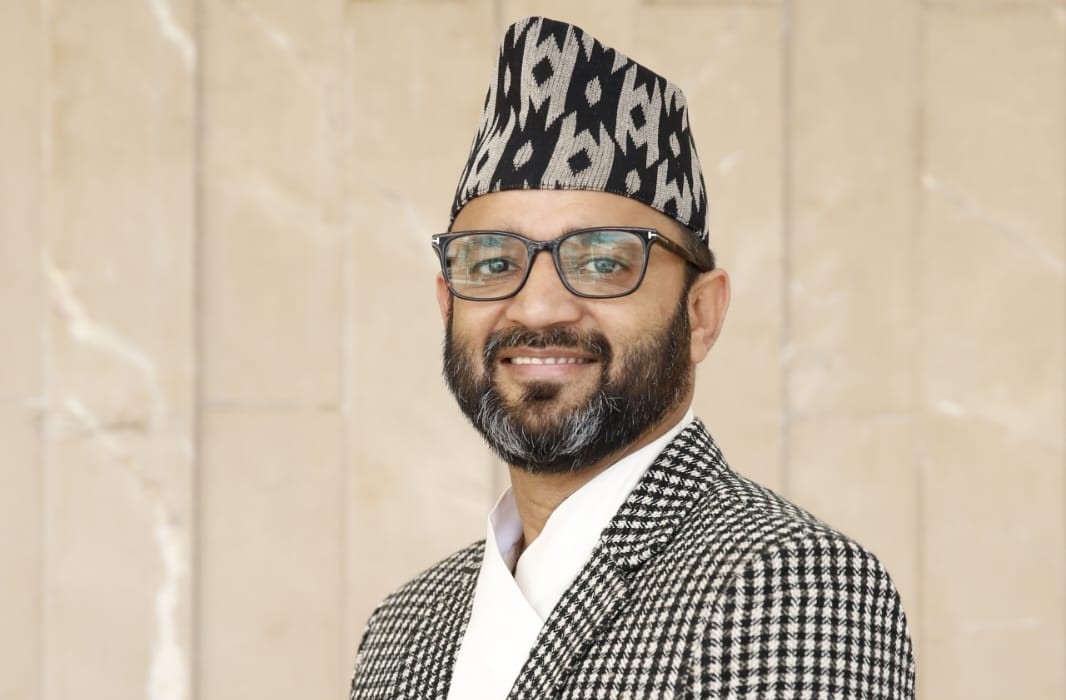Pankaj Jalan is the chairman of Lord Buddha Education Foundation (LBEF), Nepal’s first IT college. He also serves on the executive board of the Nepal Chamber of Commerce. Babita Shrestha from ApEx spoke with him on encouraging professional development for the student community’s growth and success. Excerpts.
How is LBEF developing highly qualified individuals for future growth?
When we first started this institution, education for all was our main priority, allowing Nepalis to acquire technical training at an affordable cost. Our present focus is on encouraging students to learn new advanced skills and creating stable employment for them in order to keep them working as professionals in Nepal.
Would you please give us an overview of the variety of professional programs and the college’s integrated curriculum for theoretical knowledge and practical skills?
Since we are Nepal’s first IT college, we are primarily concerned with IT education. Besides, we also offer managerial training. LBEF provides both bachelor’s and master’s degrees. At our college, the delivery method differs slightly from what the other institutions are providing. We are associated with the Asia Pacific University of Technology and Innovation (APU), a Malaysian institution, and we adhere to their curriculum. They follow Industry 4.0 curriculum, an outcome-based learning, which is only practiced by our institution in Nepal.
The other important factor is our university believes in continual evaluation. Students are evaluated for 15 days once every ten years. In order to keep students engaged with the course curriculum, internal assessment and assignment are taken into account for their final evaluation. Assignments, group presentations, skill tests of all kinds in various formats for each subject, and group discussions have all been a part of the students’ work. Additionally, to improve students’ performance, the university is granting access to the ten online libraries.
How does the college help students beyond academic instruction?
Firstly, we have a placement cell here, which unquestionably guarantees that the students will have an internship. To familiarize students with the job market, we also conduct regular guest lectures from different companies. We host a placement day every six months where 30-35 firms are invited for counseling and placement. Every student in our institution is required to do a four-month rigorous internship as part of our curriculum. Later on, they even have the opportunity to get employed.
Can you share the success stories of recent graduates? How does the college engage with its alumni to foster a strong professional network?
According to our data, this college has produced more than 130 CEOs across the globe. Not only CEOs, we have also produced DIGs in the Nepal Police who specialize in computer science and many other technical fields. Until now we have celebrated three alumni meets and now we are planning to celebrate every year. We have appointed six alumni from different countries. I think our students can also benefit from these alumni networks. On the 25th year of our celebration on September 10, we are planning to publish an alumni directory.
Currently, it seems that the majority of students are having trouble deciding on a career. Most students are entering the IT field without having the right ideas. What is your suggestion to such students?
The students today are going after the trend and pursuing degrees that are simpler to complete. They don’t seem to make an effort to enhance their skills. For that, I’d like to advise them to do some research on the subject to understand the market and prospects. A survey by the American government found that 70 percent of jobs are in this field. Everyone anticipates job prospects to be wider, as the world becomes more dependent on IT, which is true. This industry is expanding and its wider prospect is definitely the reason behind students entering the IT field.
We frequently hear that the exponential advancement of artificial intelligence (AI) will be a threat to numerous IT jobs. What are your thoughts on this matter?
Technology will continue to advance. From our homes, offices, and hospitals, we can see technology practically everywhere. Although some jobs must have been affected by AI, it is unlikely to replace IT, as AI’s system is guided by it. AI is here to make life easier and I believe it will open more doors for IT engineers in the field. Such assertions are incorrect, in my opinion, as monitoring and execution need IT personnels.
The IT sector is escalating, so are the number of colleges. Being the first ever IT college in Nepal, what is the situation of enrolment?
Of course, the market evolves with time. In the past, there would be lines of students waiting to enrol, but things drastically altered after 2015. For students to choose the IT industry back then, they had to have a science background. We were the pioneer to change that trend and now even management students can go for IT courses. Although the number of establishments has increased, the curriculum and courses continue to lag behind in terms of advanced education in many institutions. Additionally, educational institutions are now becoming a business market. So it’s high time the government monitored such institutions. Also, the existing institutions have to be proactive and grow with time with a skill testing approach and new initiatives.











